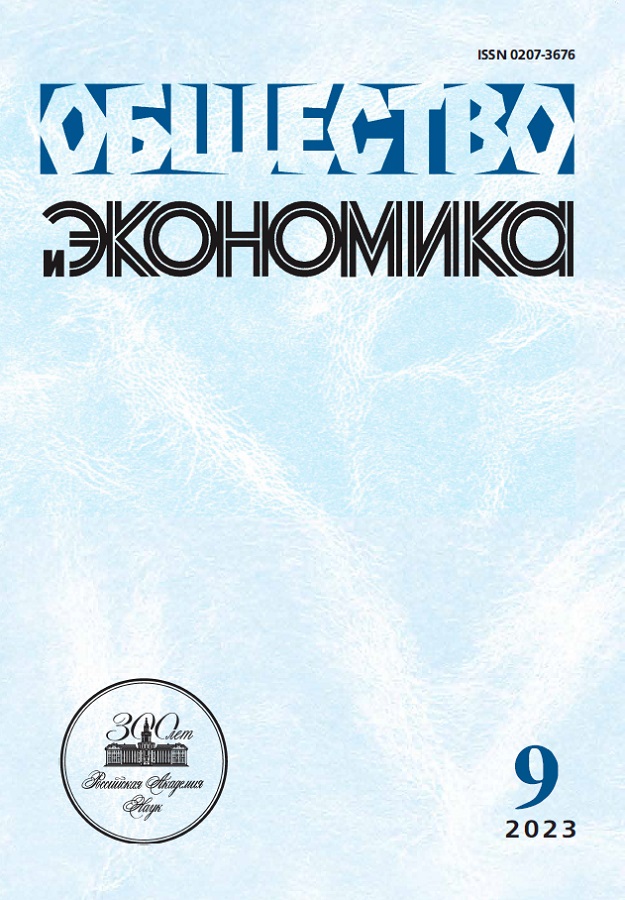Changes in Global Foreign Direct Investment Flows and Achievement of the Sustainable Development Goals
- Autores: Kvashnina I.1
-
Afiliações:
- Institute of Economics (RAS)
- Edição: Nº 9 (2023)
- Páginas: 51-61
- Seção: Articles
- URL: https://rjmseer.com/0207-3676/article/view/671420
- DOI: https://doi.org/10.31857/S020736760027682-9
- ID: 671420
Citar
Texto integral
Resumo
The article examines the trends in the movement of global foreign direct investment that have developed over the past decade. It is noted that FDI flows are characterized by high volatility, as well as a decrease in the relative contribution to the growth of world GDP and investment in fixed assets compared to previous periods. The reasons are the decrease in the role of tangible assets in external flows, the change in the forms of doing business in the context of digitalization, the strengthening of protectionist trends against the background of the crisis caused by the epidemic and the unfolding geopolitical conflicts. These processes lead to fragmentation of investment flows and their regionalization. They have a negative impact on international investment in economic development and on the achievement of the Sustainable Development Goals, especially in developing countries.
Palavras-chave
Bibliografia
- World Investment Report 2020. International Production beyond the Pandemic // UNCTAD, New York and Geneva. – 2020. - 247 p.
- Спартак А. Современные трансформационные процессы в международной торговле и интересы России. М.:ВАВТ/Издательство ИКАР, 2018.
- Глобальный институт McKinsey. Глобальные потоки: узы, связывающие во взаимосвязанном мире. 2022. URL:https://www.mckinsey.com/capabilities/strategy-and-corporate-finance/our-ins Дата обращения: 17.04.2023
- World Investment Report 2022. International Tax Reforms and Sustainable Investment // UNCTAD, New York and Geneva. - 2022. – 219 p.
- World Economic Outlook: A Rocky Recovery. International Monetary Fund | April 2023. – 206 p.
- Квашнина И. Мировые потоки капитала в условиях глобальной нестабильности // Общество и экономика. № 10, 2021. С.68-79
- World Investment Report 2023. Investing in sustainable energy for all // UNCTAD, New York and Geneva. - 2023. – 205 p.
- Investment Trends Monitor. January 2023. //UNCTAD Issue 44.
- Доклад о мировых инвестициях 2023. Инвестиции в устойчивую энергетику для всех. URL: https://unctad.org/publication/world-investment-report-2023 Дата обращения: 27.07.2023
Arquivos suplementares










